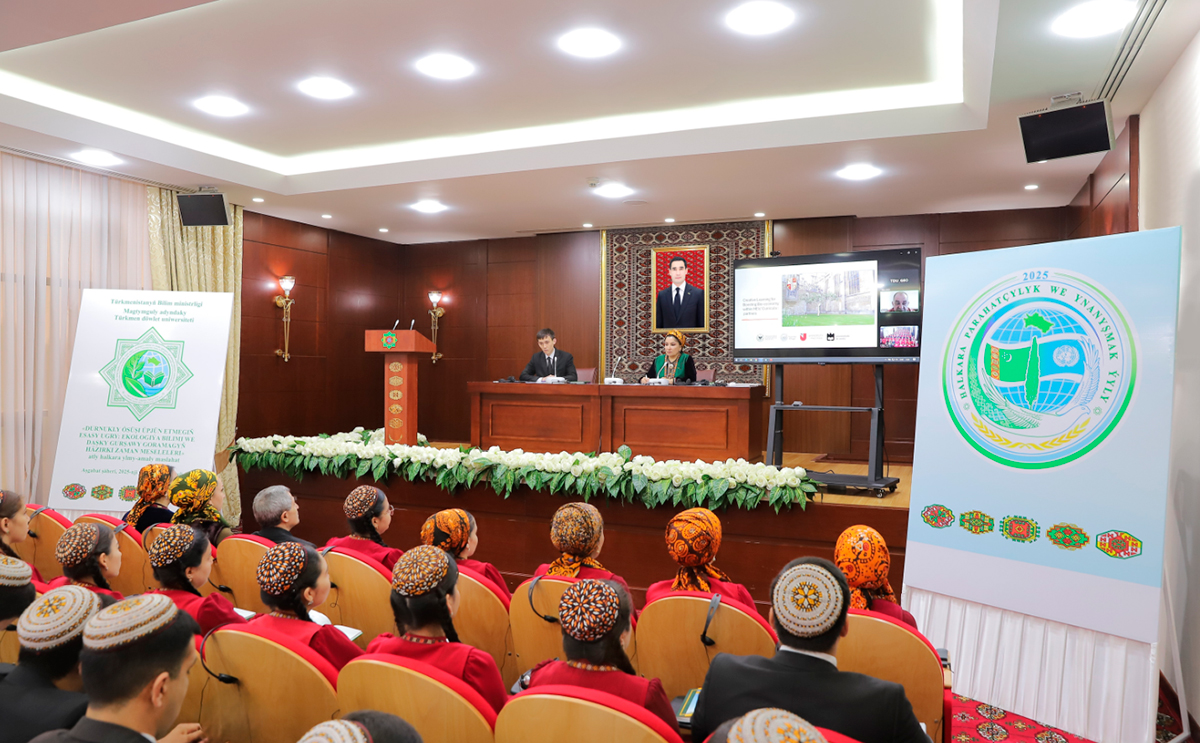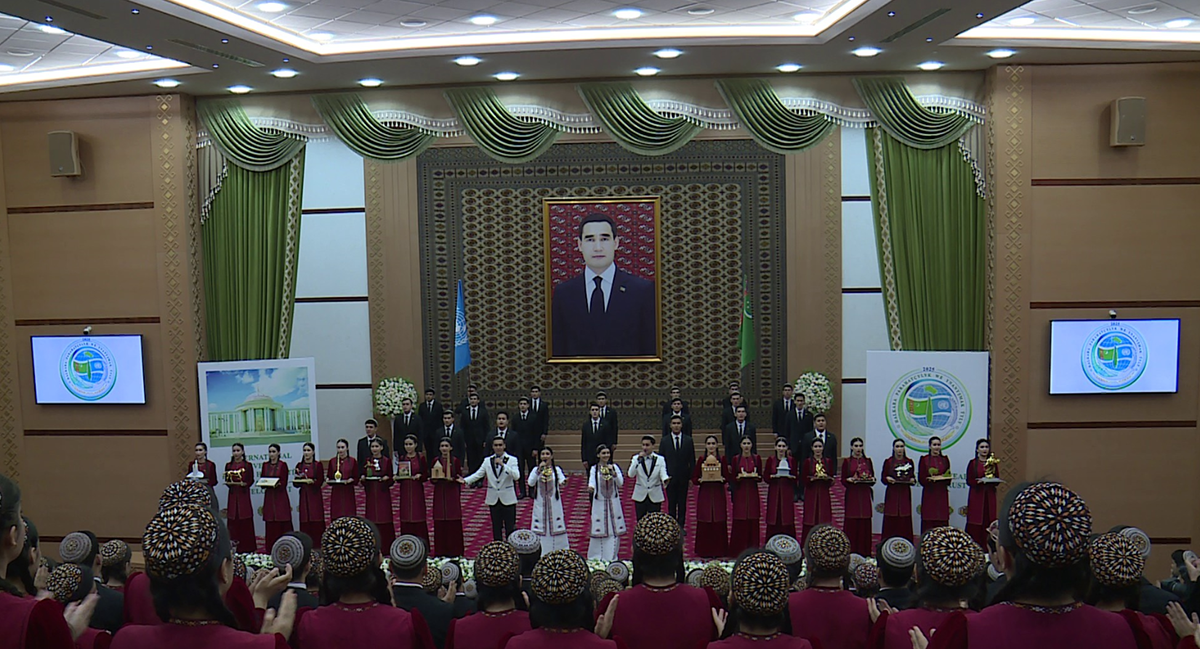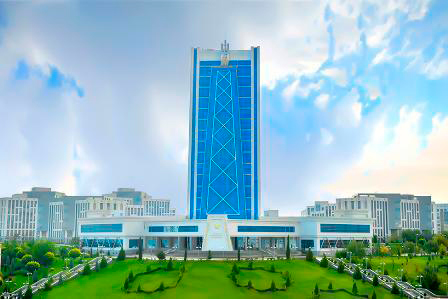Today, the Turkmen State University named after Magtymguly began hosting the solemn opening and plenary session of the International Scientific and Practical Online Conference "Priority Areas for Implementing Sustainable Development Goals: Environmental Education and Modern Environmental Protection Issues".
The forum is attended by over 180 professors, teachers, and scientists from 74 higher educational institutions and research institutes of Turkmenistan, Azerbaijan, Uzbekistan, Tajikistan, Kazakhstan, Kyrgyzstan, Russia, Belarus, Iran, Turkey, Hungary, the United Kingdom, Germany, North Macedonia, Poland, Belgium, Romania, India, Pakistan, Japan, Vietnam, Korea, Nigeria, and Algeria.
During the opening ceremony, it was emphasized that independent and permanently neutral Turkmenistan, as an active advocate for strengthening international peace and trust, purposefully and effectively implements state environmental policies aimed at ensuring environmental sustainability and security at the regional and global levels, which is one of the most important tasks of the modern global community.
It was noted that within the framework of international environmental cooperation, Turkmenistan, as an active participant in regional and global conventions on environmental protection, consistently fulfills its commitments aimed at preserving, rational use of water and land resources, increasing biodiversity, and enhancing environmental education and culture among youth in the context of climate change.
One of the regional initiatives proposed by Turkmenistan is the Resolution "On Cooperation between the United Nations and the International Fund for Saving the Aral Sea," aimed at improving the environmental and socio-economic situation in the Aral Sea region and developing international cooperation to prevent the negative impact of the Aral Sea problems on the region.
It was mentioned in the speeches that, to achieve environmental security, Turkmenistan continuously modernizes its environmental legislation and works to bring it in line with environmental standards of international conventions and agreements in the field of ecology and environmental protection.
Tomorrow, the international conference will continue its work in three thematic sections: The Role of Innovative Technologies in Developing Environmental Education; Monitoring the Effective Use of Water and Land Resources; Main Problems in Studying and Protecting Biological Diversity.
The conference is held to conduct a deep analysis of modern ecological issues related to climate change, improve approaches to environmental education, integrate specialized courses into curricula aimed at effective use of natural resources in modern conditions, create interactive tools and platforms for education, train high-level specialists, and strengthen international cooperation in scientific research and educational programs in ecology.









